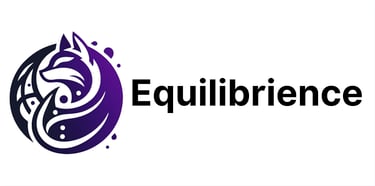Does Your Target Audience Care About That Typo?
Perfect Writing? Forget It! Learn why typos and imperfect grammar won't hinder your success. Focus on clear communication, valuable content, and your unique voice.
CONTENT CREATIONSOCIAL CAPITALGROWTH MINDSETALL THINGS WORKRESILIENCESOCIAL MEDIA
Aria Guzu
6/15/20244 min read


I started consistently writing online about a year ago. Naturally, I felt anxious about my language: Does this sound professional? Does it fit in with the style? Are all the commas in the right place?.. My mother tongue is Lithuanian, and even though we used English at home, I didn’t live in an English-speaking country during my early years.
As a multinational with various personal and professional experiences, I came to accept it. I own it. It’s magical to think that if someone has an accent, there’s another language — or languages? — hiding beneath their layers. Sociocultural contexts and learning opportunities. There’s a lot to consider here.
Writing apps to the rescue?
I’ve been using Grammarly for ages. Throughout my university years and a busy professional career, I drafted project proposals, news articles, press releases, scientific reports, and research papers… You name it - I wrote it.
Naturally, when deadlines loom, our attention span decreases. Switching tasks also doesn’t help… So, discovering Grammarly was a game changer. It caught typos, highlighted dubious professional terms, and suggested other minor edits.
However, as more data was collected, technology improved. It’s usually a good thing. But looking back at these writing apps and what their assistance used to be, it makes me question how we ended up with the software that we have now.
Writing apps democratized writing. But it also got standardized.
Grammarly, Hemingway, and other similar software reduced the barrier of entry. No matter where you are, the languages you speak, or the topics you’re researching and are passionate about — you can write it. Writing software enabled us to connect with like-minded individuals, share our thoughts, participate in discussions, and build a professional brand. That’s powerful!
However, these applications standardized writing. It has pros and cons. Firstly, it ensures that professionals adhere to industry standards and use professional terms. No jargon, etc. Secondly, it corrects spelling and related issues. All of these are welcome functions.
However, as time went by, it neutered the language. Writing software shoves our writing into a Procrustean bed. It works well for administrative writing, but kills our personal style and drains all the juice if we’re trying to be engaging and aiming at a semi-formal style.
Writing apps hate my writing. I can tolerate Grammarly, but Hemingway and the likes are absolutely out of the question. I love the idea of having an editor — identifying logical errors or underlying a word that might not really fit there. Perhaps a typo here or there?.. But the more I wrote and the more I used these tools, the less I was satisfied. It took away the joy of writing. Eventually, I realized it was killing my style.
We write for various reasons — and our audiences also read for different purposes.
Objectively speaking, there is good writing and bad writing. But it’s also important to understand the purpose behind it.
There are different types of writing — and different audiences. As a professional, I consume an immense amount of information. Every single day, I read reports, research papers, the news… All of this information comes from different sources. Many — non-English countries or professionals.
When we seek knowledge, we read behind the lines. What we perceive is beyond letters, words, and missing commas. We might not even care about the style!
Quite frankly, when I’m reading certain works, I approach them with a particular mindset: this is not Camus or Kafka. In these situations, my goal in reading is not to achieve aesthetic pleasure. If it’s beautifully written, easy to understand, and concise — perfect, a bonus. But the main driver behind is the hunger for information — I need data, insights, and value.
A few weeks ago, I read a MedTech paper about AI. It was published last year and came from a respectable university in the Middle East. The research presented tapped into technicalities and opportunities for the future. It was insightful and thought-provoking, and I found it incredibly valuable. However, if we focused on the aspect of language, it was lacking. But the question is: does the target audience care?
Audiences focus on value
If we’re not aiming to be the next Shakespeare and target wider audiences to share our professional insights, language is not the most important factor. It’s only important to the extent of being able to express our ideas logically and clearly.
Readers care about authenticity and our experiences. As long as our writing is well-researched and credible, the target audience will read it nevertheless.
Working with professionals from all over the world and drafting various pieces of writing, I came to realize the most important language-related aspects:
good structure
clarity
complex ideas communicated in a logical way
showcased knowledge and experience
insight
documented sources, citations, and references
If our writing contains all of the above, the professional audience will overlook language-related shortcomings.
The importance of personal writing style
I believe in the power of engaging communication. Our writing doesn’t need to be boring. If we’re targeting wider audiences or sharing content in a semi-formal setting (for example, Medium), we can have fun whilst at it.
Needless to say, writing apps hate it — software will throw notifications and highlights, but it’s your choice if you want to ignore it.
My recommendation? Have fun. If you’re building a personal brand, give your voice to it and be authentic. Provide value, focus on the information you’re offering — and go with it. And if you’re not a first-language speaker, don’t fret — there’s an audience for you, nevertheless!
Key takeaways:
If you’re a professional looking to grow your personal brand, don’t feel discouraged if writing isn’t your forte.
Identify your target audience and write valuable content. Language shortcomings will be overlooked.
Focus on clear and engaging communication, emphasize the main points, and avoid jargon and technical language.
Explain complex ideas simply, break them into chunks, and make them digestible.
Writing has many purposes, and creators have various motivations. Focus on what’s important to you and move forward. Don’t get discouraged, and learn as you go!


